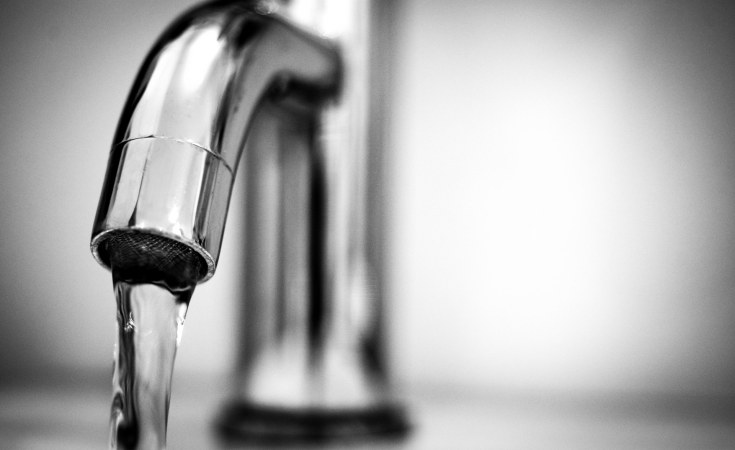Water and sanitation are topics that are not excessively reported about in Rwanda and Africa at large. One of the reasons is that journalists lack enough information about them thus leaving the public not fully informed about them.
It is for this reason that African Water Association-AFWA, whose vision is to be the lead organisation in refining the performance of actors in the water and sanitation sector in Africa, has organised a training for journalists from African countries.
ALSO READ: Utility agency blames water scarcity on rapid urbanization
The training that aimed at equipping journalists with knowledge on water and sanitation and spreading its advocacy in their respective countries using diverse platforms, took place in Abidjan-Ivory Coast on 17 February, and will push through to 18 February.
Journalists from 21 African countries including Togo, Nigeria, Kenya, Cameroon, Rwanda, and others were urged to join efforts and spread the campaign to achieve universal access to water.
As the training will be closing, the 21st AfWA International Congress and Exhibition and seventh International Faecal Sludge Management Conference slated for 19, to February 23 will start. The discussions will focus on access to water and sanitation in Africa.
While addressing the reporters, Simeon Kenfack, the AFWA program director heartened the attendants to provide advocacy and support to curb the increasing water challenges that are mostly triggered by over population.
He emphasised that water is life and sanitation is dignity, which is why the two shouldn't be overlooked because having information about them could save people from sicknesses and dying from drinking or using unclean water, among other dangers.
Mbeguere Mbaye, the senior sanitation coordinator AFWA pointed out that urban population growth negatively affects access to safe sanitation.
A new report by WHO and UNICEF published on July 1, 2021 indicates that by 2030, billions of people around the world will not have access to safely managed safe water, sanitation and hygiene services, unless the current rate of progress is quadrupled.
This is why he noted that governments should develop new approaches to allow urban sanitation if old ones have not shown any improvements, and to consult diverse firms for ideas.
He also called upon the public to change the mindset and learn to use sanitation facilities even without being reminded.
According to him, stakeholders must put in place approaches that would be necessary in finding solutions to poor sanitation but not copying developed countries for methods that aren't working.
"Everyone is entitled to safe sanitation, and there ought to be peer to peer learning capacity to build activities and trainings."
Mbaye also highlighted that leaders shouldn't sit in offices and craft dialogues without including people on any water and sanitation policy, but include everyone for more ideas.
Through the Citywide Inclusive Sanitation (CWIS) Initiative, authorities are required to implement a strong community mandate to ensure safe, unbiased and maintainable sanitation services for everyone, and to allow the public to have access to data and transparency, he added.
"We anticipate improving capacity for 300 African stakeholders in 30 cities, push its directive in Africa, and ensure that we offer many trainings and education to advance the impact of water, sanitation and health-WASH programs," he states.
He noted that 4.5 billion people rapidly lack access to safety managed sanitation, 57 per cent of people living in urban areas have no access to toilets which provide full sanitation services, and 16 per cent don't have basic sanitation service which amounted to 709 million people in sub-sahara African in 2017.
According to Valentin Yao, the sanitation training manager AFWA, to improve sanitation, everyone ought to have equitable access to suitable and affordable enhanced sanitation services through appropriate sewered and non sewered systems which don't pollute the environment.
He emphasised that there should be feasible and affordable fecal sludge management and a mandate of putting in place human and financial resources, and work towards meeting goals and but mostly, be accountable.
"Toilets should be constructed in public places and emptied while full and ensure sewage treatment plants are fabricated to remove impurities from wastewater."
He also noted that public institutions should be trusted with sanitation accountability, and the private sector must take part in service delivery.
Yao added that in areas where wastes are disposed faecal exposed, decision makers must invest in financial sustainability and safety sanitation services,
He also stressed that sanitation improvement systems ought to be developed.
The WHO and UNICEF Joint Monitoring Programme on Water, Sanitation and Hygiene, "Progress on household drinking water, sanitation and hygiene 2000 to 2020", states that approximately 2.1 billion people, or 30 per cent of the world's population, who still do not have access to domestic drinking water services, and 4.5 billion, or 60 per cent, who do not have adequate sanitation services.
This issue is expected to be lessened if journalists are often given more trainings to report vividly about it to raise awareness.


